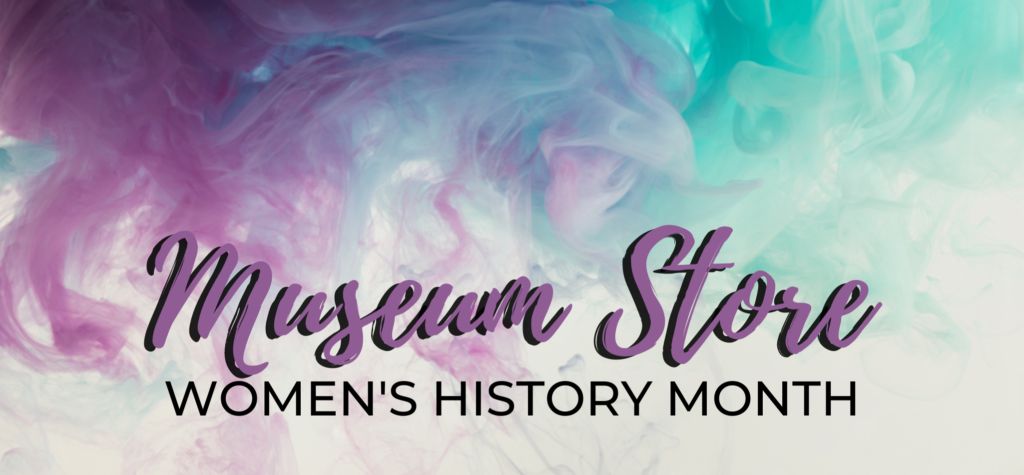
Every year, the President of the United States designates the month of March as Women’s History Month. The month is set aside to honor women’s contributions in American history.
Women’s History Month began as a local celebration in Santa Rosa, California. The Education Task Force of the Sonoma County Commission on the Status of Women planned and executed a “Women’s History Week” celebration in 1978. They selected the week of March 8th to correspond with International Women’s Day. The movement spread across the country as other communities initiated their own Women’s History Week celebrations the following year.
In 1980, led by the National Women’s History Project, a combination of women’s groups and historians successfully lobbied for national recognition. That year, President Jimmy Carter issued the first Presidential Proclamation declaring the Week of March 8th as National Women’s History Week. Over the next seven years, each President continued to proclaim a National Women’s History Week in March. Finally, in 1987, Congress passed a law designating March as Women’s History Month. Since then, presidents have issued annual proclamations celebrating the contributions and achievements women have made over the course of American history in a variety of fields.
The Huntsville Museum of Art celebrates women in art during Women’s History Month. Currently, HMA has two exhibitions on display of art entirely by women artists: Impressionist Landscapes from the Sellars Collection and Encounters: Althea Murphy-Price. Our Museum Store also recognizes the achievements of women. In this shopping guide, learn about the products we carry that provide opportunities to celebrate Women’s History Month.
Books to read
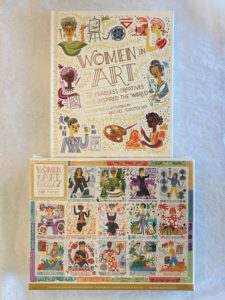
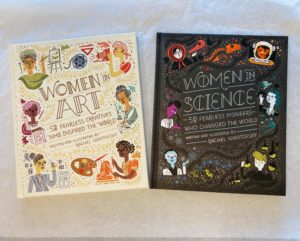

Women in Art and Women in Science by Rachel Ignotofsky highlight 50 women in these respective fields alongside charming illustrations. Women in Art presents the profiles of 50 pioneering artists from the 11th century to today, while Women in Science outlines the contributions of notable women in the fields of science, technology, engineering, and mathematics from the ancient to the modern world. For additional fun, pick up the puzzle versions!
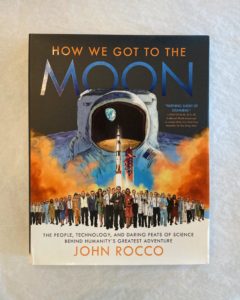
How We Got to the Moon by John Rocco tells the stories of 400,000 unsung heroes – engineers, mathematicians, seamstresses, welders, and factory workers – and their innovations that allowed NASA to achieve the historical moon landing. Learn about women like Katherine Johnson, Dorothy Vaughn, Dottie Lee and France “Poppy” Northcutt in this beautifully illustrated and educational book.
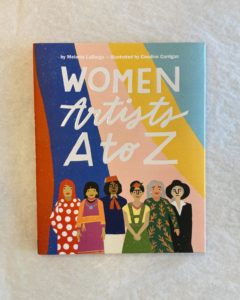
Women Artists A to Z by Melanie LaBarge and Caroline Corrigan is an empowering and educational alphabet picture book about women artists. From Frida Kahlo and Georgia O’Keeffe to Jaune Smith and Xenobia Bailey, this alphabet picture book presents both famous and underrepresented women in the fine arts from a variety of genres: painting, drawing, sculpture, photography, and more. Each spread encapsulates a creator’s iconic work in only one word that corresponds to a certain letter of the alphabet, followed by a more in-depth description.
Support Women-Owned and Operated Businesses
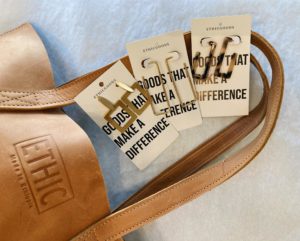
Ethic Goods’ mission is to use fashion to help women across the globe heal, step into their potential, and leave a great legacy for their kids. They partner with non-profits that provide counseling, education, and healthcare. Each Ethic Goods piece is handcrafted by the women they employ. This helps those women develop their business skills so that they have the opportunity to provide for their families and set their children on a new, hope-filled path. By wearing their pieces, you give freedom to women around the world.
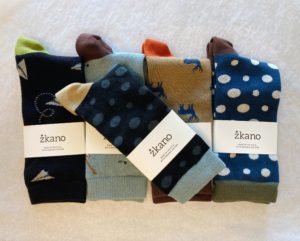
zkano is a sock mill company based in Fort Payne, AL. Fort Payne used to be the “Sock Capital of the World,” until textile manufacturers began moving outside of the United States in the late 1990s early 2000s. Gina, the founder of zkano, was determined to continue the town’s tradition at her family mill. She incorporated her passion for sustainable living with her family’s business and decided to begin creating organic cotton socks. The organic cotton is grown, spun and dyed here in the South. These socks are comfortable, durable and environmentally friendly. The sustainability aspect of zkano’s business practices do not stop at their materials and production process. They donate socks to homelessness shelters and community organizations in Alabama, repurpose fibers, and offer a sock recycling program for customers.
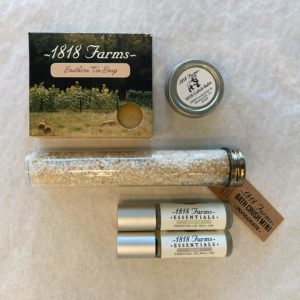
1818 Farms is based just down the road in Mooresville, AL. People all across the country know 1818 Farms for their bath and beauty products. These products are handmade from original, small-batch recipes. 1818 Farms offers a wide range of products, from creams and soaps to coffee and pottery. They use herbs and other ingredients from their farm and some products feature a label depicting their loveable farm animals. The Museum Store sells a variety of 1818 Farms’ beauty products as well as their pet accessories. Read our other blog post highlighting 1818 Farms here.
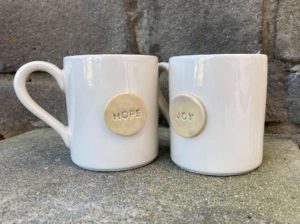
Prodigal Pottery works to employ, equip and empower women in need. These products are handmade by Birmingham-area women recovering from homelessness and abuse. Prodigal Pottery staff provide financial and professional training, emotional care and support, and assistance in finding stable living situations and transportation. Helping the women they serve transition out of chronic homelessness and into stability is a foundation of their program. By purchasing one of these Hope and Joy mugs, you are supporting women in the state of Alabama.
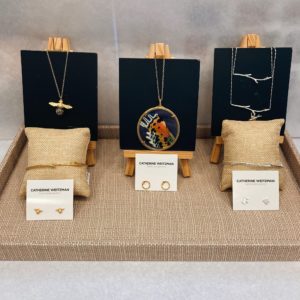
Each piece of Catherine Weitzman jewelry is inspired by nature and handmade with 18 karat gold, sterling silver or semi-precious stones. Catherine’s jewelry effortlessly combines elegance and wearability while balancing current fashions with timeless style. The designs connect the designer, the hands that made it, and the person who wears it and makes it her own. Visit the Museum Store to view the jewelry cases on display and find the perfect piece.
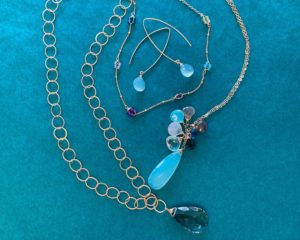
Judy Brandon has been designing and handcrafting jewelry since 2000. Using precious and semi-precious gemstones with 14k gold fill as well as sterling silver, the designs, made by Judy herself, are elegant and refined. Her attention to detail, creativity and unique blending of materials have made these pieces popular across the country.
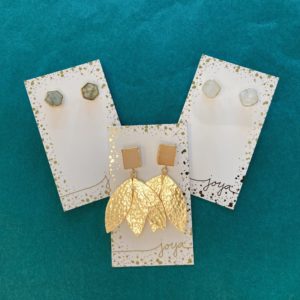
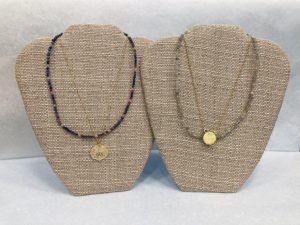
Joya is a curated collection of hand-crafted jewelry created by artisan communities around the world. Each Joya piece is 100% hand-crafted by expert artisan jewelers using traditional jewelry-making and textile techniques. They are dedicated to creating products with authenticity, quality, and history behind every piece. Created by women, for women, Joya is dedicated to giving back to women’s causes around the world. Proceeds from every purchase go toward a women’s charity that is striving to improve women’s lives every day.

